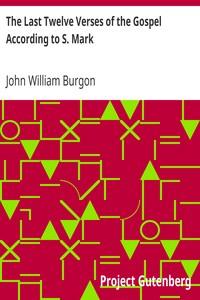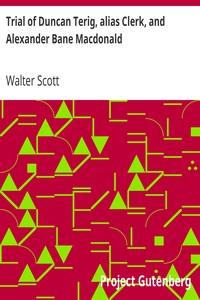Read this ebook for free! No credit card needed, absolutely nothing to pay.
Words: 5482 in 2 pages
This is an ebook sharing website. You can read the uploaded ebooks for free here. No credit cards needed, nothing to pay. If you want to own a digital copy of the ebook, or want to read offline with your favorite ebook-reader, then you can choose to buy and download the ebook.


: The Last of the Legions and Other Tales of Long Ago by Doyle Arthur Conan - Short stories English; Adventure stories English; Historical fiction English
WEEDS
EDITH SUMMERS KELLEY
NEW YORK
HARCOURT, BRACE AND COMPANY
WEEDS
Bill Pippinger was counted to be as good a neighbor, as bountiful a provider and as kind a husband and father as was to be found in the whole of Scott County, Kentucky, according to local standards of goodness, kindness and bountifulness. He had never been known to refuse a neighbor the loan of anything that he owned, from his pocket knife to his team of mules. He was prompt with neighborly assistance whenever there was any big job to be done, such as a smokehouse to move or a hog to butcher. If he saw his neighbor's ox or his ass fallen down by the way, he heeded the Bible injunction, of which he had never heard, not to hide himself from them, but surely to help his brother to lift them up again. And if he saw his brother's ox or his sheep go astray, he brought them again unto his brother; for he was one of the few strictly honest farmers in Scott County. Unlike most of his neighbors, too, he was a man of peace. He never sought a quarrel and always avoided one if possible. He had never in his life pulled a gun on a man, an unusual record for a native of rural Kentucky, brought up from boyhood in the time-honored tradition that the pulling of guns is a manly sport.
His wife had little cause for complaint against him, for he hardly ever got drunk oftener than once a month at the Georgetown Court Day. He saw to it that there was always, or at least nearly always, at least one fat hog in the pen waiting to be butchered at Thanksgiving or Christmas. He aimed every spring to raise enough corn so that there would be plenty to feed the hens, to fatten his hog or hogs and to furnish material for the daily cornmeal cakes until next season's crop came on. If Bill did not always succeed in this laudable endeavor, the blame was not laid at his door by his neighbors and certainly not by himself. If there came a dry spell that withered up the corn just as it was filling out in the ear, it wasn't Bill's fault. And if a rainy season set in and kept the ground so wet that he couldn't get into the patch with a cultivator, it was none of his doing if the weeds grew so fast that they soon overtopped the corn. Bill was not the inventor of weeds nor of their nefarious habit of growing faster than corn. Under such circumstances reflections like this gave him much peace of mind and spiritual comfort. There was considerable satisfaction in being able to shift the blame onto the Almighty; and there was still further repose of spirit in the thought that no effort of his own weak, human frame could undo the damage done by the will of that all-powerful being. If the corn crop was light, it was light, and that was all there was to it; and there would be that much less corn to shuck out and that much less fodder to haul in.
There were of course other matters pertaining to the farm over which Bill could exercise more control than he did over the rain supply. On these latter his mind could not repose with the same peaceful abandon; hence he did not concentrate upon them. The fences that needed mending, the manure that ought to be hauled out, the brush that should be cut out of his pasture to give the grass a chance to grow: these things preyed more or less upon Bill's mind, but he did not allow them to annoy him too constantly. After all, he told himself, there was just so much that one man could do on a place. A man couldn't be hauling out manure and cutting brush and mending fence all at the same time; and there was no use in worrying because everything was not kept up to the top notch. Besides, a fellow had to have a little rest now and then and a chance to visit with his neighbors, or what use to be alive at all?
Bill dearly loved to rest and visit. They were his favorite pastimes and indeed about the only ones that the circumstances of his life offered to him. To sit on a rail fence or a hitching post with a chew of tobacco in his cheek, a bit of wood in his left hand and a jack-knife in his right, and pass the time of day with all and sundry who happened by, was as much as Bill asked of life. Whether the place was his own barnyard or Jim Townsend's blacksmith shop or Peter Akers' general merchandise store in Clayton made no particular difference to Bill so long as he could sit and chew and whittle and talk. He was built long and rickety, nondescript of feature, but with a bright twinkle of humor and kindliness in his gray eyes; and his tall, narrow-chested figure was a frequent sight about the lounging places of Clayton.
The main trouble with Bill was that along with nine-tenths of the rest of humanity, he had missed his calling. He was by nature a villager, not a farmer, and the great regret of his life was that he had not been a blacksmith. He had mastered the trade through sheer love of it and had become the best of non-professional blacksmiths. He shod his own horses and the horses of all his neighbors, asking them nothing in return but the pleasure of their company while he worked. To have a little shop of his own in the village whither the farmers would come from six or seven miles around, bringing their horses and all the news and gossip of the neighborhood, that had always been Bill's unrealized dream. Chance, however, that wayward arbiter of the fates of all of us, by making Bill the son of a farmer and the husband of a woman who had inherited a farm, had spoiled a good blacksmith to make a poor farmer. It did not occur to him to repine or cry out against his lot or consider himself in any way a blighted being on this account. He merely cast a momentarily envious eye upon Jim Townsend, the blacksmith, whenever he happened to see him, and went on farming--after a fashion. He was a gentle, kindly and sociable soul, and the good will of his neighbors meant more to him than anything else on earth except his family.
His family consisted of his wife and five children. Aunt Annie Pippinger, a small, inconsequential woman in the early forties, was all one color, like an old faded daguerreotype. She may have had some claims to prettiness in the days when Bill courted her; but they had long since gone, leaving her a bit of drab insignificance. Crawford, the eldest boy, was surprisingly handsome and quite as surprisingly indolent of mind and body. The twins, Luella and Lizzie May, were thin, sickly-looking little girls. Lizzie May was pretty in a pale, blond, small-featured way. Luella had a long, pale face, drab hair and dull gray eyes; and her mouth hung open as though she had adenoids. Judith was the third girl, born two years after the twins. After her there was an interval of four years marked for Aunt Annie Pippinger by two miscarriages and a stillborn infant. At the end of this interval a child was born who grew into a chubby, round-eyed, stupid-looking little boy named Elmer.
The back dooryard was beaten bare and hard by the playing feet of children and the dumping of endless tubs of soapsuds and pans of dishwater. A discarded cookstove lying on its side against the back wall of the kitchen, formed the nucleus for a pile of rust-eaten pots and pans. Beyond the bare spot, a fringe of mustard, ragweed, and burdock reached to the picket fence. Along this fence a dozen or so stalks of hollyhock bloomed in summer gorgeously pink and scarlet against a blue sky. The smoke house and the back house occupied opposite corners of this yard, a well worn path through the weeds leading the way to each.
Free books android app tbrJar TBR JAR Read Free books online gutenberg
More posts by @FreeBooks

: The Last Twelve Verses of the Gospel According to S. Mark by Burgon John William - Bible. Mark XVI 9-20 Criticism Textual


: Trial of Duncan Terig alias Clerk and Alexander Bane Macdonald for the Murder of Arthur Davis Sergeant in General Guise's Regiment of Foot by Scott Walter - Trials (Murder) Scotland; Terig Duncan Trials litigation etc.; Macdonald Alexander Bane Trials liti






